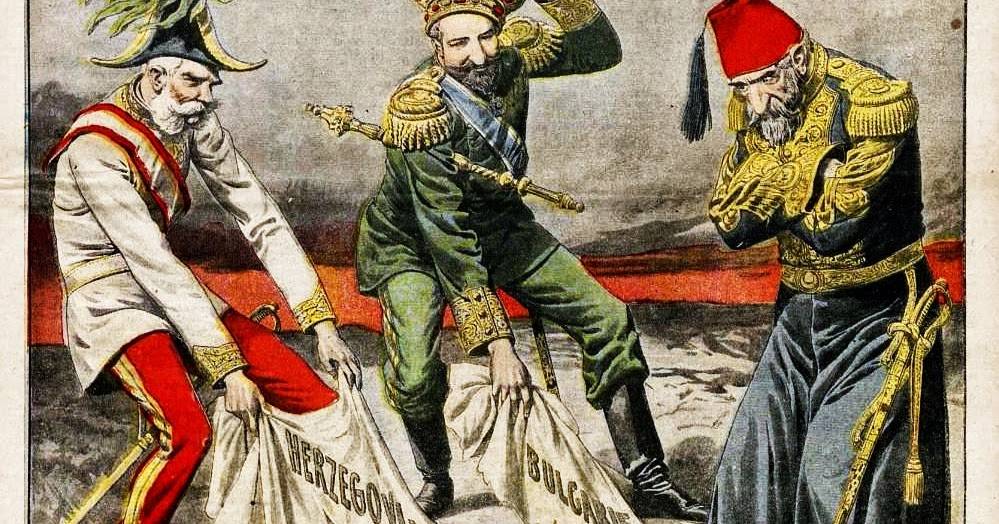Good morning! Mike Shelby here, and here’s what’s on my radar…
The Ottoman Crisis was a period of economic, financial, and political instability that ultimately led to the collapse of the Ottoman Empire.
Briefly, three factors drove this instability:
- Diverse populations fomented a series of rebellions and nationalist movements, weakening state legitimacy.
- The Ottomans suffered military defeats and territorial losses, weakening state capacity.
- And the empire lost its commercial dominance and monopoly on trade routes to encroaching European powers (the topic of today’s Radar).
I don’t intend to suggest that the American Empire’s situation is similar to the Ottoman’s, or that the American Empire will end the same way, however…
One critical factor that weakened Ottoman power is the loss of its trade routes to the encroaching Dutch and British who wrestled away control of the seas.
What came next is instructive:
“As the treasury lost more of its revenues… it began to meet its obligations by debasing the coinage, sharply increasing taxes, and resorting to confiscations, all of which only worsened the situation…
“Those conditions were exacerbated by large population growth during the 16th and 17th centuries… The amount of subsistence available not only failed to expand to meet the needs of the rising population but in fact fell as the result of the anarchic political and economic conditions. Social distress increased and disorder resulted.”
The Money Quote:
“No matter who controlled the apparatus of government during that time, however, the results were the same—a growing paralysis of administration throughout the empire, increasing anarchy and misrule, and the fracture of society into discrete and increasingly hostile communities.” (bold mine) [source]
I bring this up because the ongoing Red Sea Crisis shows that the United States lacks the capacity (the military or political will, in this instance) to enforce the security of international shipping lanes and the global commons.
The Biden administration has admitted as much: Are the missile strikes on Yemen working? No. Will they continue? Yes.
Meanwhile, the Houthis continue launching attacks against commercial ships while allowing safe passage for most friendly ships (Russian and Chinese, for instance).
The presumptive eventual Russian victory in Ukraine and the coming Taiwan/South China Sea Crisis are likely to show the same: the United States is unable (militarily or politically) to stop encroachment by revisionist powers — just like the Ottomans were unable to stop European encroachment into the Middle East.
Peter Zeihan’s book, The End of the World is Just the Beginning, contains a prediction that the U.S. will be largely forced to retreat back to the Western hemisphere due to impending financial constraints and the rise of Eastern economic and military power.
If Zeihan is correct, then at best this means the U.S. remains a hemispheric power, but will cede control of the world order.
In that way, we may see the same decline as the Ottomans: the loss of influence and territory (withdrawal from military bases abroad) and loss of naval supremacy and commercial dominance.
And if that’s the case, then we might suffer similar consequences.
To name a few:
- internal conflict and political violence
- higher taxes and inflation
- worsening economic hardship
- rapid shifts in national and cultural identity
But this is not to say that it’s only doom and gloom from here.
Though troubled, the late Ottoman Empire experienced regional cultural renaissances, as well.
And there’s no reason to doubt that some areas of the United States will insulate themselves and find a way to flourish during this turbulence, despite the insurmountable national-level challenges.
A Community of Forward Thinkers
Most of us have that feeling deep within the pit of our stomachs.
We know that everything’s not right.
You’re not alone in your concerns about the future, nor in your journey towards self-reliance.
The Early Warning Network is an information-sharing and training platform where thousands of members are getting aligned and breaking free from reliance on fragile and failing systems.
We leverage professional insights and community wisdom on topics like financial independence, sustainable communities, self-sufficiency, strategic relocation, and forging strong preparedness networks.
Get connected to a growing community of forward-thinkers and start building an early warning network of your own at the Early Warning Network.
Until next time, be well and stay out front.
Always Out Front,
Mike Shelby

